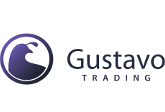

Gustavo Trading GmbH & Co. KG

Hamburg, Germany
July 2018
Textiles
Wholesale/Retail
Germany
Gustavo Trading offers products that raise awareness and are at the same time part of the solution for social and ecological problems. Gustavo Trading was founded in 2015 by Jim Tichatschek. Taking Action on climate change Kushel sets a new standard in the industry being the first climate and resource positive textile brand. By planting 2 trees for each product and compensating the carbon emissions and blue-water usage of the fair production, Kushel enables the customer to give back more resources to the earth than taken. The brand Kushel was created by Gustavo Trading in 2018 with several crowdfundings and has planted 170.000 trees in the first 2 years. Raising global demand for local handmade fabric Gustavo Trading acts as exclusive distributor (DACHL) for two brands that empower indigenous (female) artisanal textile craft: Ethnotek and N'go shoes. Gustavo Trading is actively marketing the brands and creates huge demand for home-made, traditional textiles every year. The impact done by Gustavo Trading is directly connected to the artisans as container-sized, recurring and prepaid orders are made.
Overall B Impact Score
Governance 14.7
Governance evaluates a company's overall mission, engagement around its social/environmental impact, ethics, and transparency. This section also evaluates the ability of a company to protect their mission and formally consider stakeholders in decision making through their corporate structure (e.g. benefit corporation) or corporate governing documents.
What is this? A company with an Impact Business Model is intentionally designed to create a specific positive outcome for one of its stakeholders - such as workers, community, environment, or customers.
Workers 25.5
Workers evaluates a company’s contributions to its employees’ financial security, health & safety, wellness, career development, and engagement & satisfaction. In addition, this section recognizes business models designed to benefit workers, such as companies that are at least 40% owned by non-executive employees and those that have workforce development programs to support individuals with barriers to employment.
Community 29.4
Community evaluates a company’s engagement with and impact on the communities in which it operates, hires from, and sources from. Topics include diversity, equity & inclusion, economic impact, civic engagement, charitable giving, and supply chain management. In addition, this section recognizes business models that are designed to address specific community-oriented problems, such as poverty alleviation through fair trade sourcing or distribution via microenterprises, producer cooperative models, locally focused economic development, and formal charitable giving commitments.
What is this? A company with an Impact Business Model is intentionally designed to create a specific positive outcome for one of its stakeholders - such as workers, community, environment, or customers.
Environment 36.9
Environment evaluates a company’s overall environmental management practices as well as its impact on the air, climate, water, land, and biodiversity. This includes the direct impact of a company’s operations and, when applicable its supply chain and distribution channels. This section also recognizes companies with environmentally innovative production processes and those that sell products or services that have a positive environmental impact. Some examples might include products and services that create renewable energy, reduce consumption or waste, conserve land or wildlife, provide less toxic alternatives to the market, or educate people about environmental problems.
What is this? A company with an Impact Business Model is intentionally designed to create a specific positive outcome for one of its stakeholders - such as workers, community, environment, or customers.
Customers 4.5
Customers evaluates a company’s stewardship of its customers through the quality of its products and services, ethical marketing, data privacy and security, and feedback channels. In addition, this section recognizes products or services that are designed to address a particular social problem for or through its customers, such as health or educational products, arts & media products, serving underserved customers/clients, and services that improve the social impact of other businesses or organizations.